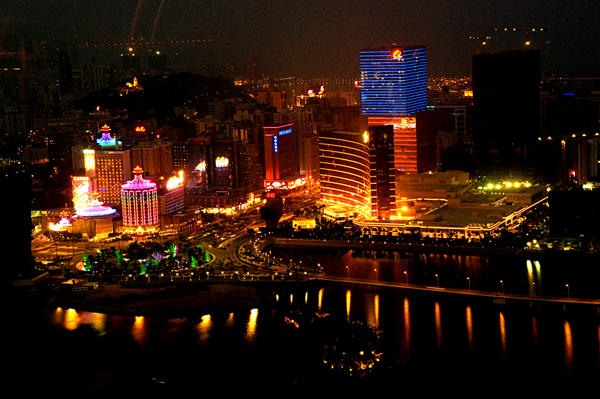 Analysts think Macau’s gross gaming industry revenue will top MOP25 billion for the current month. The estimates, put forward by serial-predictors Citigroup, were given to Macau Business following a figure of MOP6.1 billion for the first eight days of the month. It would mean growth of 5 percent for the year’s seventh month and it’s a significant amount higher than the previous month when revenue reached jus MOP23.3 billion. Unfortunately, it’s less than the same analysts’ forecast earlier this month that revenue would reach MOP26 billion and it’s unclear what has made them dumb down on the original figure.
Analysts think Macau’s gross gaming industry revenue will top MOP25 billion for the current month. The estimates, put forward by serial-predictors Citigroup, were given to Macau Business following a figure of MOP6.1 billion for the first eight days of the month. It would mean growth of 5 percent for the year’s seventh month and it’s a significant amount higher than the previous month when revenue reached jus MOP23.3 billion. Unfortunately, it’s less than the same analysts’ forecast earlier this month that revenue would reach MOP26 billion and it’s unclear what has made them dumb down on the original figure.
The same company adjusted its estimates for the entire year and are expecting the enclave to achieve growth of 13 percent – as opposed to the 20 percent it had earlier projected.
Sands China is another to be bitten by the analysts with JPMorgan cutting its second quarter EDITDA estimates by 9 percent. Their analyst Joseph Greff said that “cannibalisation” from Sands Cotai Central and slowing of the VIP market were the principle reasons for this.
It could also have something to do with their choice to apply for another extension on their latest project. Las Vegas Sands (LVS), the parent company of Sands China, is looking to delay Parcel Three which has a deadline of April 2013, mainly due to the fact they’ve yet to break ground. Grant Govertsen of Union Gaming Group is doubtful they can get the project off the ground with just a year’s extension, pointing out that an “integrated resort” takes an average of three years to be built. The same analyst is “almost certain that the company will get the extension” and it would come after a similar lengthening this time last year.
Analysts at Cantor Fitzgerald thought it enough to issue a buy rating for the company’s shares and recommended they be priced at $57. They told Benzinga.com: “LVS remains the dominant global gaming operator with significant assets in Macau, Singapore, and Las Vegas as well as a competitive edge in pursuing new opportunities as countries around the world liberalize their gaming laws.”
